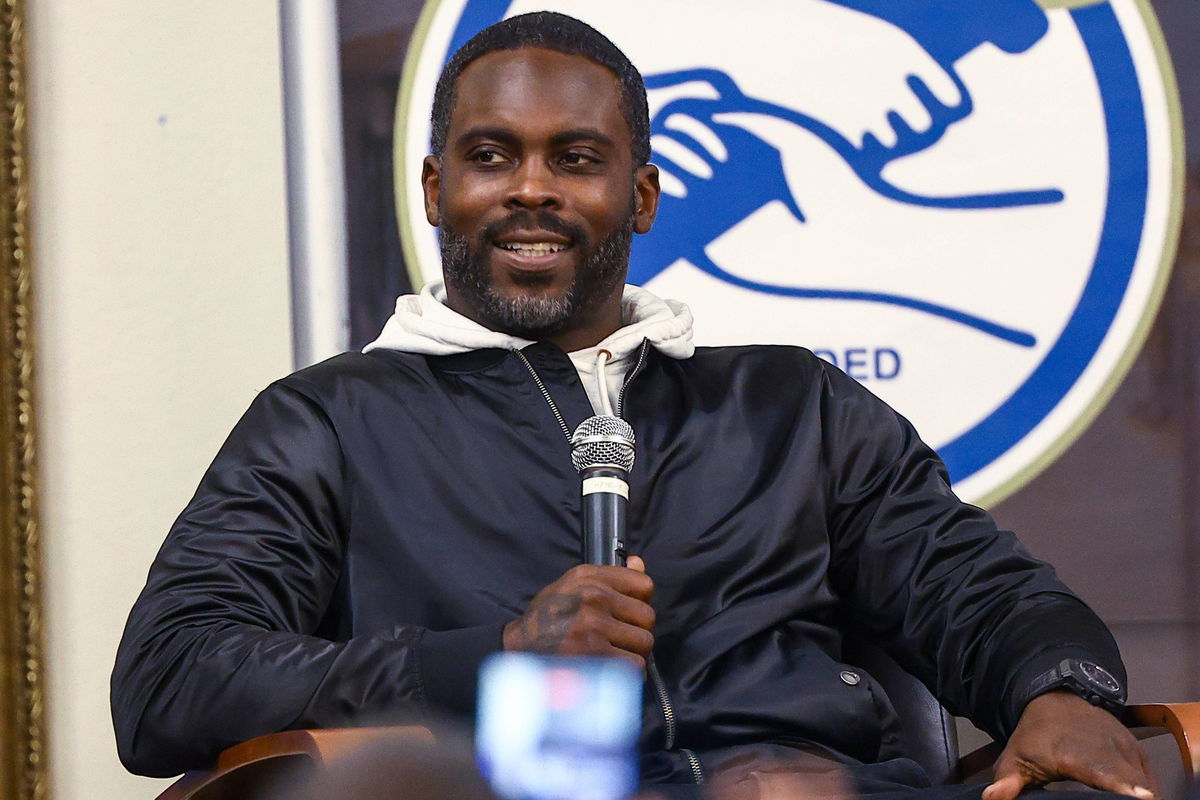
Imago
February 12, 2025, Wilmington, Delaware, U.S.A.: Norfolk State head coach and former all pro quarterback MICHAEL VICK recount his days growing up in Newport News, Virginia, during The cookout event, Wednesday, Feb. 12, 2025 at the Wilmington Public Library in Wilmington, Del. Wilmington U.S.A. – ZUMAs124 20250212_fap_s124_007 Copyright: xSaquanxStimpsonx

Imago
February 12, 2025, Wilmington, Delaware, U.S.A.: Norfolk State head coach and former all pro quarterback MICHAEL VICK recount his days growing up in Newport News, Virginia, during The cookout event, Wednesday, Feb. 12, 2025 at the Wilmington Public Library in Wilmington, Del. Wilmington U.S.A. – ZUMAs124 20250212_fap_s124_007 Copyright: xSaquanxStimpsonx
In 1999, Black quarterbacks made up nearly half of the QBs who were selected in the draft. Six out of 13, to be precise, including three first-rounders: Donovan McNabb, Akili Smith, and Daunte Culpepper. The spike in representation from a mere 3% in the 1971 season was visible, but the ceiling still remained until 2001. That was the year the number had risen to 35%, the same year the first black QB in Michael Vick to be drafted as the No. 1 overall pick.
Watch What’s Trending Now!
Sustaining a career in football long enough to reach the draft stage was never guaranteed. In high school, Vick had already begun encountering the positional ceiling many Black quarterbacks faced. During a training session, a Black NFL defensive back told him a DB, and not a quarterback, is what he’d be. Good athleticism and elite speed never mattered. It hit harder because it came from someone who looked like him.
The next thing we know is that Vick beat him in drills that same day. His high school coach, hearing what happened, shut down any thought of switching positions. By the time he accepted a scholarship to Virginia Tech in 1998, Vick was celebrated across Newport News as a local success story. All good up to this point, but achieving his childhood dream came with a steep learning curve. His name was already buzzing in NFL conversations, but privately, Vick wasn’t sure he’d even make it that far, something he detailed quite extensively in an interview with The Cookout Series on July 14, 2025.
ADVERTISEMENT
“Yeah. I just knew it was an uphill battle. I knew I had to be not be great, but I knew I just had to not make mistakes. So, my goal was to hopefully one day get drafted. Maybe it’s the first round, maybe it’s the fifth round, maybe it’s the seventh round. I just want a shot. I just want a chance. But I knew it all started in the classroom, not failing out of school, and paying attention to what’s happening on the field and learning football. And when I first got to college, I didn’t know football. I thought I did in high school. (But) I knew nothing.
“It’s a format. It’s a formula to playing quarterback. And I had to learn how to play quarterback. And it took about five months before I started understanding the structure of what was happening on the field.. I was 19 years old. I was really young, but focused, and you know, just remember the promises I made to myself. Like all the sacrifices to get there. Now I’m here.”
In just two seasons as a starter at Virginia Tech, Vick turned heads with his powerful arm and electric mobility. In 1999, he had amassed 1,840 passing yards, 12 touchdowns to 5 interceptions, with 585 rushing yards as a redshirt freshman. That same season, he led the Hokies to the 2000 BCS National Championship Game, where they narrowly lost to Florida State, but not before Vick dazzled on the national stage. He capped off the year by finishing third in the 1999 Heisman Trophy voting, becoming one of the most talked-about players in college football. Just two years later, in April 2001, he made history as the first Black quarterback ever selected No. 1 overall in the NFL Draft when the Atlanta Falcons traded up to pick him.
ADVERTISEMENT
Although his career was derailed by a 2007 dogfighting conviction that led to 21 months in prison, the Philadelphia Eagles gave him another chance in 2009. Initially a backup, Vick was thrust into the starting role in 2010 after an injury to the starter, and led the team to a 10–6 record, an NFC East title, and earned NFL Comeback Player of the Year honors.
Top Stories
Patrick Mahomes’ Dad Faces 10-Year Prison Sentence After Chiefs QB’s Father Reportedly Violated Probation Terms
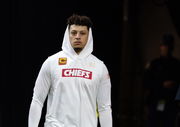
Prayers Pour In From Jordan Love & Co. as Cowboys Star Mourns Tragic Personal Loss
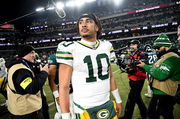
Justin Jefferson Makes Final Decision on Joining Buffalo Bills After Further Damaging J.J. McCarthy Relationship
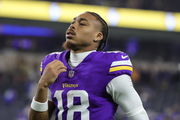
Matthew Stafford Makes Final Decision on Retirement After Narrowly Beating Drake Maye For NFL MVP
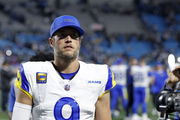
Multiple PGA Tour Pros Stopped from Playing as WM Phoenix Open Round Is Canceled Over Recurring Problem

PGA Tour Split Into Two as Scottie Scheffler Confirms Stance on Patrick Reed’s Return
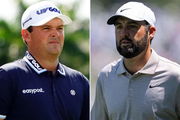
Throughout his 13-season NFL career, Vick played for the Atlanta Falcons, Philadelphia Eagles, New York Jets, and Pittsburgh Steelers. A dynamic dual-threat, he revolutionized the quarterback position with his exceptional running ability, becoming the first quarterback to rush for 1,000 yards in a season. He was selected to the Pro Bowl four times and holds the NFL record for second most career rushing yards by a quarterback, with 6,109. While Vick wasn’t the first Black dual-threat quarterback, his resurgence, explosive play, and visibility helped cement that playing style and diversity in the NFL mainstream.
ADVERTISEMENT
“Yeah, I mean, I look at the NFL and I smile every week—every Sunday, Monday, Thursday—when it’s taking place, to know that I took part in that and helped change the culture,” Vick said. “But it was a lot of guys that came before me who helped change the culture and help the growth of the National Football League in terms of what it may look like at certain positions.”
He added, “I don’t take it for granted being the first African-American quarterback drafted [No. 1 overall]. It didn’t hit me at the time what was actually happening. But as the years go on, I feel a great sense of entitlement to feel good about that moment and what it meant for our history.”
Today, Vick’s name stands alongside pioneers like Fritz Pollard and Warren Moon. And through his work as a coach and mentor at HBCU Norfolk State, he’s still fighting for the next generation of quarterbacks to be seen as quarterbacks—just as he once had to be.
ADVERTISEMENT
ADVERTISEMENT
ADVERTISEMENT
ADVERTISEMENT